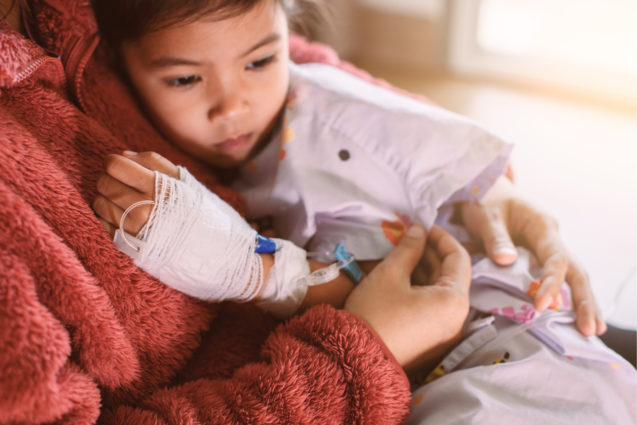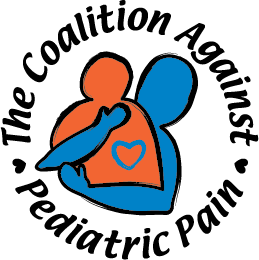
By DM Sullivan
My phone has been blowing up all week. It happens every May. This year it seems to be a little more intense, but I know the reason – Mother’s Day.
I am a rare disease mom and patient advocate. I have spent the last ten years supporting families who live with rare, undiagnosed, complex, and often misunderstood medical conditions, and I have lived and witnessed both the heroic and heartbreaking sides of motherhood.
When a child is sick, navigating the medical world brings many added parenting challenges. Go into any pediatric hospital on any given day and you will see these moms and dads, pushing aside their worry, armed with blankets and teddy bears, iPad, and snacks – anything to make the sterile and often invasive experience of medical appointments a little more comfortable for their child. These moms are amazing, and I hope they can enjoy some peace this Mother’s Day.
But the group of moms that are on my phone and in my heart today, are a special subset of this hardworking rare disease mom category. These moms are living an even bigger heartache, one that is complicated, dark, and hard to believe even exists. These rare disease moms have been falsely accused of either causing or fabricating their child’s symptoms and need for medical care – a charge known as medical child abuse. Some have had their child removed from their home and have been waiting months and even years to get their day in court. Their lives placed under the microscope, and they are seen as guilty until proven otherwise.
MOM OR MONSTER?
Medical child abuse or (MCA), which is also known as factitious disorder imposed on another or (FDIA), are two conditions that represent an entire spectrum of psychological disorders that attempt to identify characteristics of a parent or caregiver who is deliberately deceiving the medical community and inflicting harm.
Hollywood and the media have brought the term Munchausen by Proxy into mainstream attention with sensational films like “The Sixth Sense” and reporting on stories of tragic, real-life cases like that of Lacey Spears.
But how common is this unnatural disorder? The true prevalence of medical child abuse is hard to confirm. A 2018 study concluded that Munchausen syndrome by proxy is very rare when compared with other types of child abuse. Studies found out that the incidence of Munchausen syndrome by proxy is 0.4/100.000 among children below 16 years of age. In hospital settings, it is estimated that up to 1% may meet diagnostic criteria. So, what does a parent that might be medically abusing their child look like? Here are just some of the potential indicators that doctors look for:
- Child has multiple sub diagnosis, many body systems affected
- Long history of many doctors, hospitals, or clinics
- Care may be provided in multiple states
- Medical presentation is complicated and hard to understand
- Parent is comfortable in medical settings
- Parent demonstrates medical knowledge and comfortability speaking with medical professionals
- Parent, often the mother, is highly involved, advocates assertively
See the issue? The characteristics of a medical child abuser can look an awfully lot like the same traits of a rare disease parent. Therefore, it is extremely important for this problem of false MCA accusations to be elevated because rare disease patient norms, frustration, stress and trauma behaviors are being pathologized and surprisingly often by physicians with no psychological degree.
The patterns of behavior that are being flagged are unfortunately very common in people living with rare or undiagnosed conditions. Our overspecialized healthcare system is not meeting the needs of rare and undiagnosed patients. The lack of sub-specialties in medicine often gives rare and complex patients little choice but to travel for care and see doctors in different locations. However, having multiple providers in different healthcare systems often not only create gaps in care coordination and communication, but can also be a breeding ground for conflict if physicians do not agree on treatment choices. When two or three different opinions are offered, parents must make a difficult decision and decide which physician they want to work with. By doing so, these families can unknowingly place themselves at higher risk for investigation.
RARE IN COMMON
The accused moms on my mind today have more in common than one might realize. Yes, they are all having their parental fitness challenged or have lost custody of their child, and they all must live with this dark label and the judgement and isolation that comes with it. But ironically, many of these moms work in the medical field. They also appear to be dedicated parents who kept pushing for answers when doctors did not seem able to help their child. Many of them have children that live with chronic pain and connective tissue disease, such as Ehlers Danlos Syndrome. Many have children with conditions that science is just starting to understand such as autoimmune inflammation disorders and/or what are considered “controversial diagnosis” such as Mitochondrial disease or chronic Lyme disease. Many of them have their own chronic illnesses they manage, which makes sense since the children’s illness is often genetic. Some have children that struggle with medical issues that impact eating and nutrition.
All of them have genetic diagnosis and have been receiving treatment at top pediatric hospitals.
LIVING IN LEGAL LIMBO
To have the very system that you rely on to help your child turn on you has extremely devastating effects, destroying any sense of psychological safety. These women get launched into a legal realm that places their entire existence under a microscope. Suddenly parental behaviors like worrying about your child or decorating their hospital room to cheer them up while inpatient is now being viewed with sinister meaning. It is a lot to cope with and difficult to find support and people who may understand.
Many of these moms are low income and cannot afford to hire high-paid attorneys so they rely on public defenders who often have no experience defending such complicated medical cases. Criminal charges can be leveled without complete investigation. Social workers and judges are not doctors, and the courts are simply not set up to handle these cases, court dates are postponed repeatedly. Cases can be pushed back time and time again, and it is not uncommon for accused parents to have to wait six months to a year to even get an opportunity to defend themselves. So, these mothers exist in an agonizing limbo, powerless to do anything but wait. They have been silenced and unable to talk about the problematic faults in the medical system that landed them in this position in the first place and afraid to say anything that could jeopardize them from being able to keep their child. The suffering and sadness that I have witnessed in these woman is simply gut wrenching because the system simply breaks them, and leaves them to fend on their own.
PROTECTING KIDS AND FAMILIES
There is nothing more important than protecting children. Period. Doctors who specialize as child abuse pediatricians have one of the most important and difficult jobs in medicine. However, these doctors often are not trained in rare disease and have been given authority to overrule other medical specialists. Two factors which are highly problematic if the child they are evaluating has a rare or undiagnosed condition. They can and often do take custody of young patients without examining them in person or meeting the parent that is of concern.
It is no wonder this subspecialty of child abuse medicine that was formalized in 1993 has had a lot of controversy.
A 2020 investigation by NBC News and the Houston Chronicle, Do No Harm, shared the stories of several innocent families who had to fight long and expensive legal battles to get their names cleared and their children returned. In many of these cases the parents’ ability to defend themselves was further complicated by “mistaken or overstated” reports by doctors. And to further blur the lines of medicine and legal inadequacies in this process, many critics have cited concerns about abuse of power, and of potential bias because these CAP doctors are paid by state child protection agencies.
Who is overseeing the child abuse physician and the reporting process and how many cases of medical child abuse are found to be unwarranted? It is hard to say because nobody seems to be tracking it. The problem is complicated, and uncomfortable and something that medicine seems only willing to acknowledge in quiet whispers.
AN EXPERT WEIGHS IN
The preponderance of single and low-income mothers accused has not been lost on rare disease advocates. I asked Dr. Maxine Eichner, a professor of law who has been advocating loudly for reform as both a legal expert and published writer if she is seeing an increase in cases and does she think misogyny could be another unseen factor at play.
“I am seeing a rise in cases.” Eichner explained. I think it is caused by new, younger child abuse pediatricians entering the practice and being trained by older CAPs to believe the faulty science that the field of CAPs accepts. I don’t have hard data to show it, but my anecdotal experience is that single mothers are disproportionately targeted. My guess is that this is a product of implicit bias against single mothers.”
Pioneering child abuse physician, Dr. Eli Newberger has talked openly about his concerns and observations as to why the practice of protecting children seems to have fallen off the tracks. In an interview with MedPage Today, Dr. Newberger explains:
“When I was active in the field, it wasn’t simply about the injuries and the traumatic vectors that might have caused them, which is very much the focus today of child abuse pediatricians. Rather, it was about the stresses in the family and how those might be addressed in a helpful way,” Now, he says, “prosecution and punishment, rather than understanding and help, have become woven into child protection work.”
Physicians are focused on diagnosing abuse, rather than looking at the bigger picture, he said. For instance, training in psychology, to get a better understanding of possible motivations of the parent, is lacking, he said. While the diagnosis of “Munchausen syndrome by proxy” has fallen out of favor, it’s been replaced by “medical child abuse,” scrutinizing parents who bring their child in for frequent treatments.
MEDICINE NEEDS TO BETTER SUPPORT RARE AND UNDIAGNOSED MOTHERS
This Mother’s Day I hope more people will now think about these rare moms, unable to see their children or maybe those who live in fear they could be targeted next.
I think of Stephanie. A single mother and nurse that I have supported the last few years. Her daughter Lia has had documented medical issues since birth and lives with several diagnosis and a list of genetic variants also well documented, and like many in the rare disease community, Lia has specialists that work in different hospitals. However, when one of the hospitals disagreed with the treatment that Lia was receiving, the mother came under fire. Not the physician who was providing the treatment in question, and not the insurance company that verified the treatments were medically necessary.
I think about Kara, a low income, single mother battling her own health issues who moved across country to get medical care for her boys and to participate in a research study that had recruited them. It has been almost two years now and she does not think she will ever get custody back.
I think of Hannah, who told me that she stopped attending her church and still shops a few towns over, even though her charges of medical abuse were quickly deemed unfounded.
I think of Ella, who is a medical professional that has her children returned to her and wants to work to change things for other families, but is afraid if she speaks up it could threaten her ability to get medical care for her kids.
I imagine how these mothers’ lives might have been spared this pain and trauma if the medical system looked more closely at providing support for rare, complex, and undiagnosed families. I wonder if other states will follow the state of Texas, and enact legislation that allows accused parents to get their child am independent medical evaluation before a child is removed from the home. I hold out hope that perhaps the more we raise awareness of the issue, the better chance there is to solve this growing problem. And I am grateful to filmmakers such as my friend Andy Wilson who is currently fundraising to finish a film that seeks to explain this highly complex systemic problem in medicine and the impact it is having on the most vulnerable pediatric patients.
The first step to fixing any problem, however, is having the courage to admit that it exists.
If you want to help raise awareness and bring chance, please donate to our film. https://openeyepictures.com/complicated

